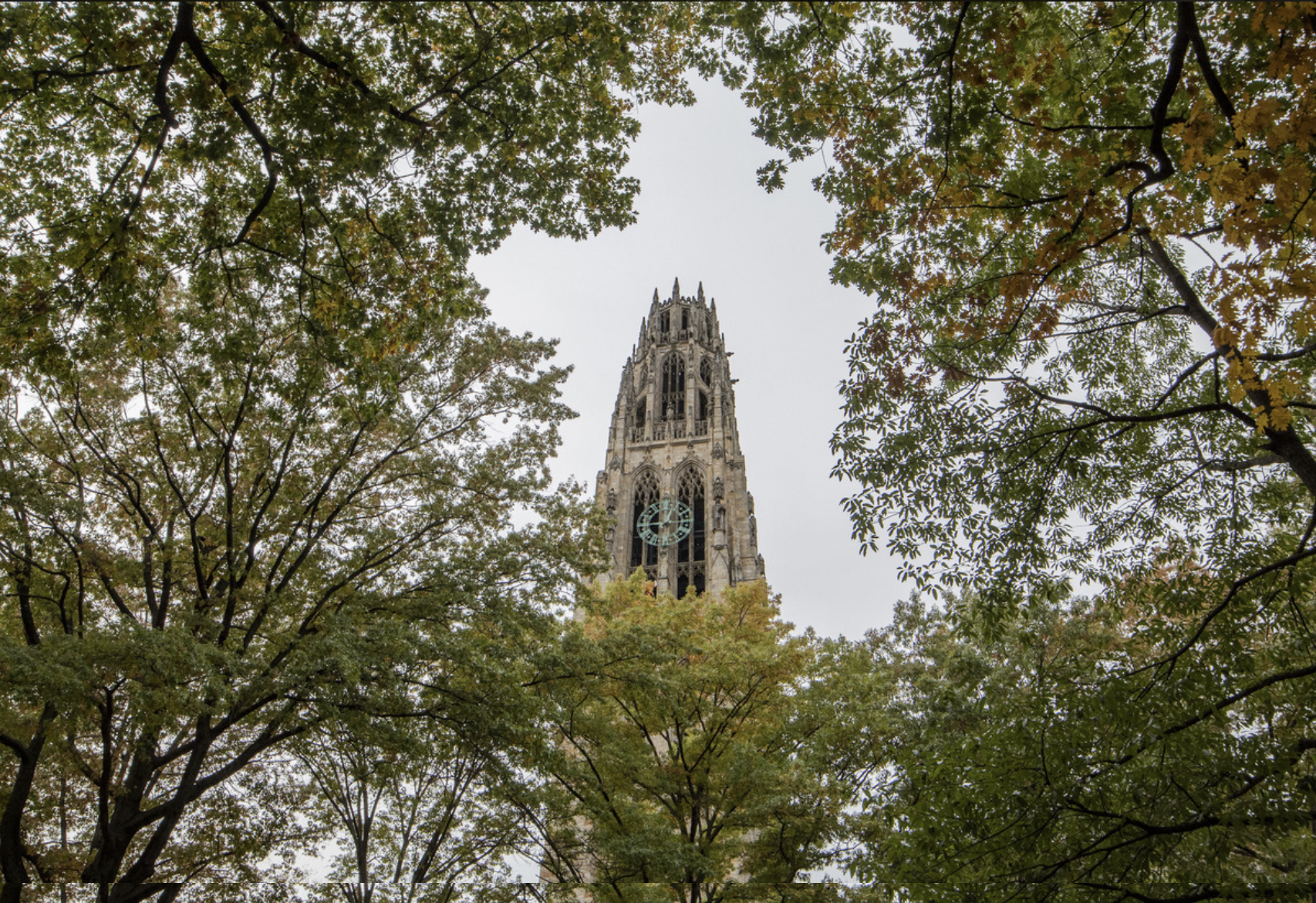
Zoe Berg, Photo Editor
After a few hours of training for her synchronized skating team, Joy Liow ’24 hops onto Zoom for her now-friend group’s nightly study halls, which include regular participants such as Lisbette Acosta ’24 and Will Gonzalez ’24, and whoever else joins the Zoom that evening. They put up a digital background that fits the night’s theme and begin talking about their day and the work they have to get done that night.
The study hall, which is open to any remote first-year students, occurs every night on weekdays, and over the last few months, around 20 students have participated. It not only allows these remote first years to study in a collaborative environment but it has also become their friend group. Or, as Acosta likes to refer to it, their own residential college. Several first years shared with the News the various ways in which they have bonded with each other through their common experiences as remote students who have never experienced an in-person Yale College community.
“It is interesting to have that group of people that understand your situation on the most basic level, and that’s really helpful,” Acosta said. “We’re all just trying to make it here. We all have different situations at home, of course. We all kind of support each other. It feels like a little family unit, which is nice.”
Liow echoed this sentiment, explaining how, despite their differences, she can confide in other remote students because they can relate to each other. She specifically mentioned that she has turned to Iris Li ’24 — the only remote representative in the First-Year Class Council — for conversation and company because Li, unlike Liow’s on-campus friends, understands what she experiences as a remote student.
But even with the support of fellow remote students, many challenges still persist, like loneliness, according to Liow, who feels the fear of missing out whenever she sees her on-campus friends hanging out with other first years or going to an in-person class.
“It’s sad,” Gonzalez said. “Honestly, there’s been times I’ve just been like, ‘I really hate it, just being at home.’ … I know my other friends have felt the same way.”
Although there was a large effort toward the inclusion of remote students at the beginning of the semester, according to Gonzalez, as the semester has progressed, events such as duty nights hosted by first-year counselors have become more catered toward on-campus students. The same goes for some classes in which professors have allowed small groups of on-campus students to meet in person.
Acosta and Gonzalez appreciate their seminar-style classes because the small class sizes lend themselves to an easier way to interact with others during a time that makes interpersonal connection challenging, especially for remote students.
“I understand how important accessibility is to friendships, like if you live close to someone, you’re more likely to be friends with them,” said Acosta, adding that on-campus students have the opportunities to make a greater number of friends. Even so, she said she is happy to have strong connections with the friends she has made, especially through the nightly study halls.
For Acosta and her fellow remote first years, having a virtual academic and a social scene means life as a remote first year revolves around the computer screen.
This, with the combination of never having visited campus before, has made it challenging for some of the remote students to feel like they are actually studying at Yale. Li still feels like a high school student, she said, since her workspace and habits have not changed since the three months of online school that concluded her high school experience.
“I just sit here,” Li said. “I do not move an inch. My movement is my right hand writing, my right hand picking up my mug and my face looking up at the screen to ask questions.”
In February, many first years who were on campus for the fall semester will leave campus and begin to learn remotely. Liow worries for these students and explained how the “monotonous” lifestyle of constantly staring at a screen takes a toll on one’s mental health.
Acosta also expressed concerns for the next academic year, hoping that administrators would put into place a system to ensure a smooth transition from an online experience to an in-person one.
“If we are in person next year, it would be ideal to have some kind of social support system for those remote first years,” Acosta said. “Like a FroCo for sophomores or something like that to kind of help them adjust.”
In total,1,267 first years enrolled for the fall 2020 semester.
Adam Levine | a.levine@yale.edu







